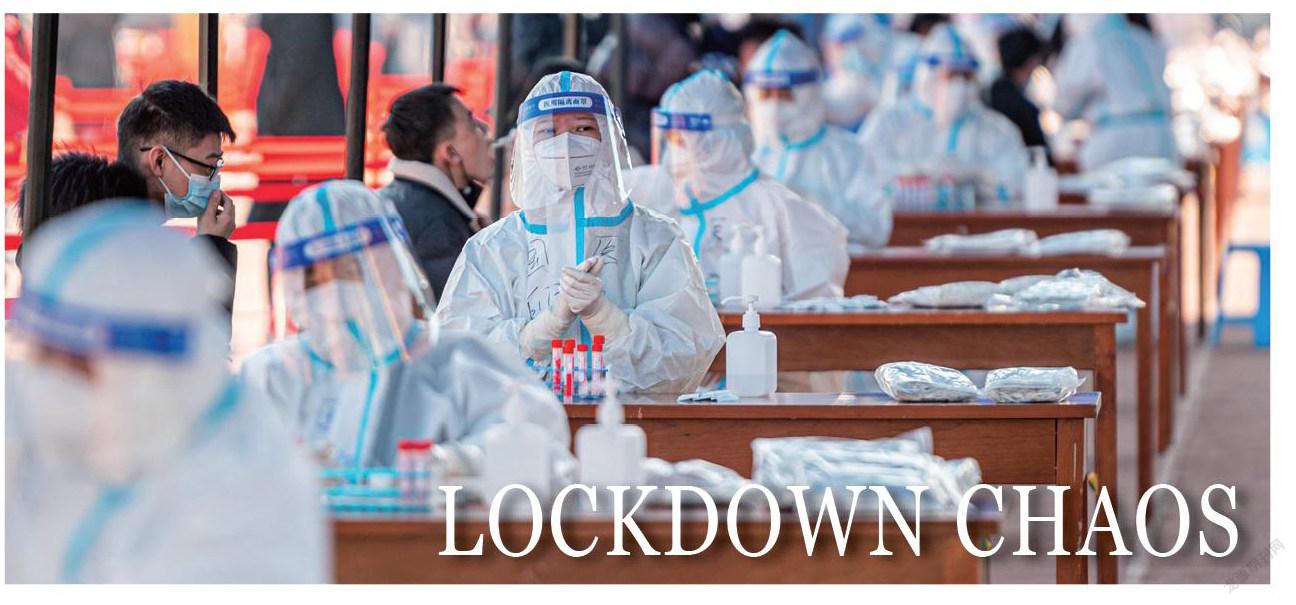茶话会
2022-02-25



Fertility Feuds
Little understood by men, the case for vasectomies is gaining ground
“Who wants to be a eunuch?” a user on question-and-answer platform Zhihu, blogging under the name “Papillon,” scoffs in answer to the question “Why dont Chinese men want to get a vasectomy?” to a smattering of “likes” below.
Lack of medical knowledge, poor sex education, as well as historic social norms that placed the burden of birth control on women have contributed to a low rate of male sterilization as a form of birth control in China, which saw just 4,742 vasectomies performed in 2019 according to the National Health Commission. By comparison, there were close to 240,000 female tubal legations and 3 million intrauterine devices (IUDs) obtained in the same year—the latter around 600 times higher than the number of vasectomies.
According to the United Nations, female sterilization, or tubal ligation, is the top contraceptive method used worldwide, with 219 million women having gotten the procedure as of 2019 (counting for 24 percent of women using birth control), followed by IUDs with 159 million users (17 percent). However, just 2 percent of men—among 779 million male contraceptive users surveyed—had undergone male sterilization.
The Chinese Pharmaceutical Association and online platform Ding Xiang Yuan have been publicizing knowledge about male sterilization, while well-known physicians like Song Weidong from the Peking University Peoples Hospital have been popularizing the idea that men should take responsibility on birth control.
But the topic became controversial when in late November last year an online influencer known as Chongchong, who usually posts romantic short videos of herself and her boyfriend, stated shed once gotten an abortion after an accidental pregnancy and preferred IUDs for birth control because her boyfriend “will not get a vasectomy.”
Historically, women have borne the brunt of responsibility for birth control in China. During Chinas “one child” era between 1980 and 2015, many new mothers whod given birth once were asked by the Family Planning Office to get an IUD, with painful complications commonplace due to the poor medical technology of the time. According to the national Family Planning Office, there were about 450 million cases of surgical IUD insertion from 1971 to 2017, and over 40 million men had vasectomies during that period.
IUD safety has improved since then, and getting a vasectomy is generally considered a safe and simple medical procedure. However, public knowledge about male sterilization remains low. The Zhihu user, who confused vasectomy with castration, is not an anomaly: “There are still quite a few men who misunderstand vasectomies. They are either worried about erectile dysfunction, or afraid of potential health problems,” writes a blogger on WeChat under the name Mr. Sixth Floor, who claims to be a former OB-GYN and has been devoting himself to educating the public about gynaecology and female health. “They care nothing about the sacrifices and risks women take in contraception.”
In a survey of college students on sexual and reproductive health by Chinas Family Planning Association in 2020, only 52 percent of the students stated they had formal sex education in school, 18 percent said they never had any, and close to 20 percent “were not sure.” “In my whole life, I had never learned about birth control from school or from my family. The first time I learned about vasectomies was from articles online about six months ago,” Zhang Xiaowan, a 26-year-old working in Beijing, tells TWOC.
Regardless of whether vasectomies or IUDs are more invasive or risky, medical professionals and feminists have been calling for Chinese men to make equal effort toward birth control. “Contraception should not only be the womans responsibility,” feminist blogger Liang Yu writes on Weibo. – Anita He (賀文文)
BullyingVictims Suicide
In early December, police in Zhoushan, Zhejiang province, discovered the body of photographer Zhou Peng (better known by his online handle Ludaosen), who disappeared on November 28 after posting a suicide note on Weibo citing his experiences as a “left-behind” child growing up with absent parents, and being bullied at school for his feminine appearance.
The tragedy, and Zhous familys indifferent reaction, has attracted anger and grief about left-behind children and school bullying. Former victims of bullying have commented with their own experiences below Zhous final post, with many criticizing teachers and parents dismissal of childrens reports of bullying as being “oversensitive.”
According to government figures, China had over 6 million “left-behind children.” On January 1, 2022, Chinas Family Education Law came into effect, outlining families and the governments responsibility to guarantee the physical and mental well-being of minors. – A.H.
Lost Boy Found
Sun Haiyang, the father of an abducted child whose story inspired the 2014 filmDearest, has reunited with his son after 14 years of searching, attracting well-wishes from the public and calls for harsher punishments for child trafficking.
Suns son, originally named Sun Zhuo, was abducted in Shenzhen when he was 4 years old and has been raised by a family nearly 2,000 kilometers away in Liaocheng, Shandong province. Now 18, Sun Zhuo chose to return to his birth parents, but told journalists he does not want his “adoptive” parents to be charged with a crime.
The trafficking suspect, surnamed Wu, faces up to ten years in prison. Media have advocated equal punishment for human traffickers and buyers as the only way to truly deter child kidnappers. According to the governments “Reunion” alert system for missing children, 4,801 children have been reported missing since 2016, and 4,707 have been found. – A.H.
Lockdown Chaos
A Covid-19 outbreak in Xian, Shaanxi province, has drawn public criticism over officials deadly mishandling of the citywide lockdown that began on December 23.
Facing Chinas worst outbreak since Wuhan in 2020, the Xian government prohibited all residents from leaving their housing compounds on December 27, but some residents reported insufficient deliveries of food, sanitary products, and medicine. Several people with medical conditions from medium-risk areas were turned away from hospitals, with one man dying from a heart attack and an eight-month pregnant woman suffering a miscarriage. The citys “health code” app crashed twice during the outbreak, locking people out of public buildings.
A number of local officials, including the head of the data management bureau, have been laid off or suspended for incompetence, but many are calling for systematic change to the citys inflexible pandemic policy. The outbreak, caused by the viruss Delta variant, led to 2,188 confirmed cases. – A.H.
Photographs by VCG
